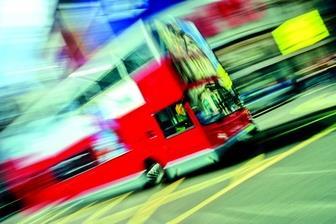A green travel plan could be good for your company as well as the planet
Pick Everard’s plan for its head office in Leicester is a voluntary one, although any business seeking to build a new headquarters must now submit a travel plan as part of its planning application.
The firm wants to be carbon neutral by 2025, and asked sustainable transport specialist Go Travel Solutions for help in achieving that goal.
Andrew Bannister, Pick Everard’s environmental manager, says: “We have a responsibility to the planet to reduce our carbon footprint. On a practical level, travel also costs time and money, so it makes good business sense to review how your staff travel to and for work.
“Until the 1970s the bus was the mainstream, then that gave way to the car. We’d like to see the bus become the mainstream again.”
Go Travel Solutions offers advice on sustainable transport to businesses, public bodies and transport operators. Managing director Robin Pointon and his team reviewed Pick Everard’s company car use, business travel and commuting. They also looked at the firm’s communications, to see how business travel could be avoided, for example by video conferencing.
Bannister says: “Robin went through our modes of travel and conducted a survey that revealed some of the reasons behind our travel. From there he set us objectives and targets that we feel will benefit the business.”
The green travel plan is awaiting sign-off from senior management. The main target is to cut business mileage by 10% a year per employee.
Staff feedback has been positive, although Pointon admits that habit can be a hurdle. “Marketing any voluntary travel plan internally is tricky. Human behaviour can be difficult to change.”
Converging issues
Pointon says that businesses’ need to cut costs because of the recession converges with the need to cut carbon emissions. “It’s a great fallacy that you cannot cut costs and improve sustainability. Some would have you believe that they are two mutually exclusive concepts. That simply isn’t true.
“At the moment, the financial saving is the key issue. A year ago, it would have been the environmental side.”
Bannister agrees that with the bottom line getting ever tighter, there has never been a better time to review areas such as transportation. Reduced emissions is a valuable side-effect.
“And it’s not just about carbon. There are other important benefits, such as better efficiency and less fatigue. We all spend too much time in our cars.”
As Pick Everard is a company that works in sustainable design and construction, did Pointon find any differences in collaborating with it on the travel plan?
“All businesses nowadays are much more savvy about, and receptive to, green [issues]. They have far more of an interest in the environment,” he says.
“A few years ago climate change was arguably a more niche issue for businesses in general. There was some confusion on the subject and conflicting information. In the past few years, however, it has become obvious that we must reduce our emissions.”
Pick Everard is in talks with other businesses in Leicester about how to tackle the problem of city centre congestion.
Bannister says: “One central motivation behind this idea, aside from getting staff out of their cars and onto buses, is to form links with other businesses and potentially form a transport group.
“We’ve started to talk to other companies in the area. We need to understand our collective transport patterns and the reasons behind them. This could lead to some successful joined-up thinking and make a real dent in our carbon footprints.”
Source
Building Sustainable Design






















No comments yet